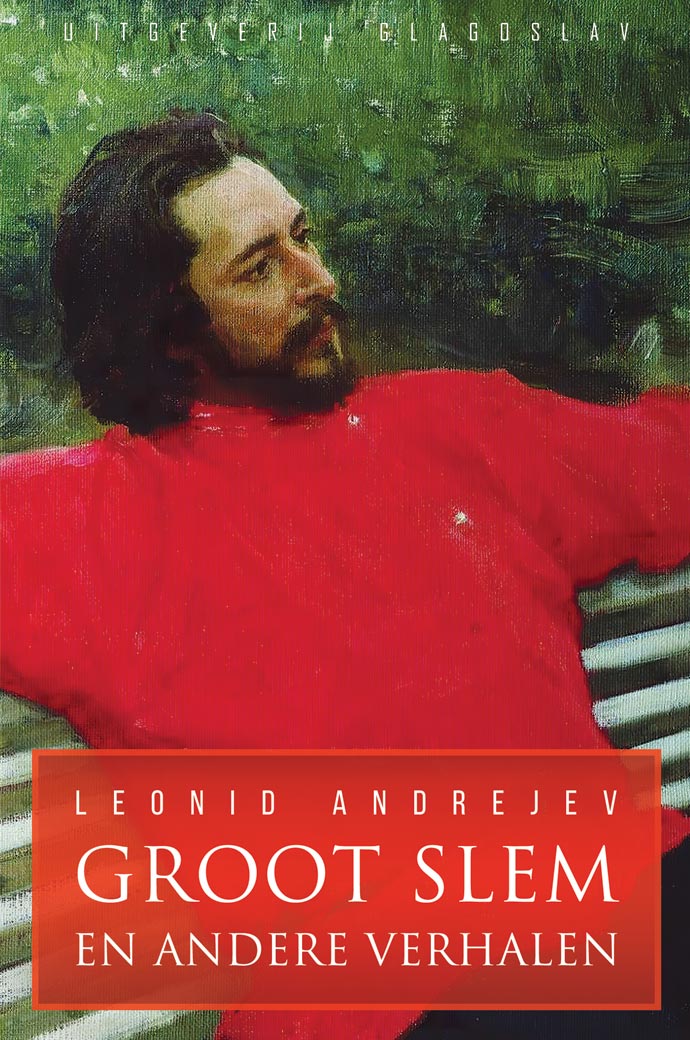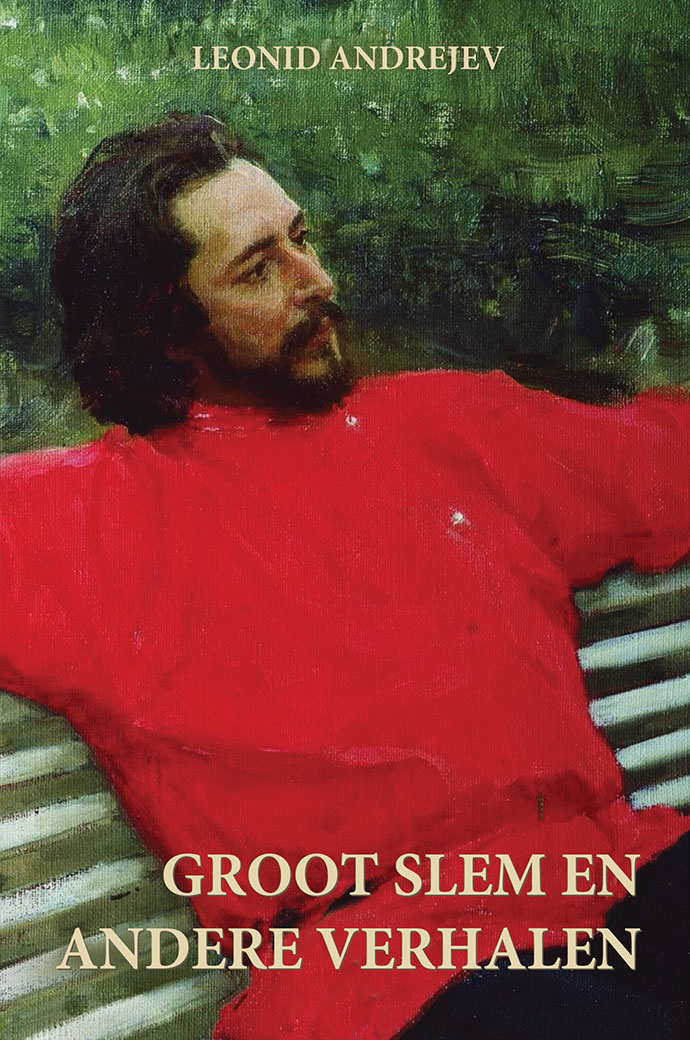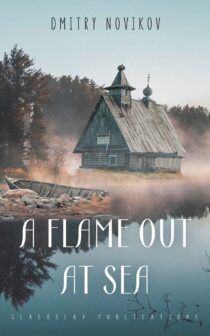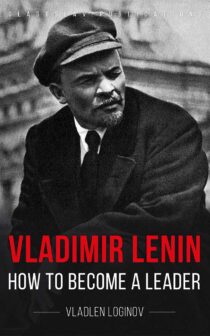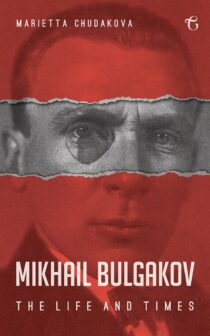Groot Slem en andere verhalen (Dutch Edition)
€9.95 – €19.99Price range: €9.95 through €19.99
Author: Leonid Andrejev
Translators: Amy Bakkes and Otto Boele
Andrejevs actieve periode als schrijver besloeg zo’n twintig jaar in een tumultueuze periode van de geschiedenis van Rusland. De vertwijfeling en de onzekerheid die de oorlog en de revolutie met zich meebrachten beïnvloedden in zijn werk. Thema’s als de tragiek van eenzaamheid, angst voor de dood, existentiële vertwijfeling en vormen van waanzin en hysterie, die zich veelal in een ziekenhuis of op het sterfbed afspeelden, zijn niet weg te denken uit Andrejevs boeken.
Andrejevs actieve periode als schrijver besloeg zo’n twintig jaar in een tumultueuze periode van de geschiedenis van Rusland. De vertwijfeling en de onzekerheid die de oorlog en de revolutie met zich meebrachten beïnvloedden in zijn werk. Thema’s als de tragiek van eenzaamheid, angst voor de dood, existentiële vertwijfeling en vormen van waanzin en hysterie, die zich veelal in een ziekenhuis of op het sterfbed afspeelden, zijn niet weg te denken uit Andrejevs boeken. In veel van zijn verhalen lopen waan en werkelijkheid door elkaar, waardoor een persoonlijk drama wereldomvattende proporties kan aannemen. Hoewel Andrejev zich aan zeer gevoelige onderwerpen waagde als verkrachting en geslachtsziekte, en daardoor de geschiedenis is ingegaan als een sensationeel en overwegend pessimistisch schrijver, worden veel van zijn betere verhalen gekenmerkt door een humoristische inslag.
Deze uitgave bevat een aantal verhalen van Leonid Andrejev die in hun compleetheid en originaliteit de thema’s en stijl van deze grote Russische meester uitstekend weergeven.
***
After his debut in 1901 with the novel There Were Once, Leonid Andreev became one of the most popular writers in pre-revolutionary Russia. In his first novels he introduced signature elements that would become integral to his later works: terminally ill patients, fear of death, existential desperation, forms of madness and hysteria, and typical settings – a mental hospital, an infirmary or someone’s deathbed.
Andreev’s active period as a writer spanned twenty of Russia’s most turbulent years. Feelings of despair and uncertainty, provoked by war and revolution, made their way into his work. Although in many ways Andreev owes a debt to Anton Chekhov, something especially evident in his novels A Break and Grand Slam, he is considered a modernist. Many of his stories mix delusion and reality, creating a sense of personal tragedy that assumes global proportions. This is particularly the case in The Alarm and He. The Story of an Unknown.
Despite the fact that Andreev’s work dwells on highly sensitive issues such as rape and venereal disease, provoking sensational and predominantly pessimistic narratives, many of his best stories also feature a humorous slant. The novel Rest, for one, is a light variation on Tolstoy’s The Death of Ivan Ilyich, and in juxtaposition to its oppressive theme demonstrates the agility of a well told anecdote.
[real3dflipbook id=’25’]
| Dimensions | N/A |
|---|---|
| Authors | Leonid Andreev |
| Book Format | Paperback, EPUB, Kindle, PDF |
| Pages | 170 pages |
| Publication date | 30th May 2013 |
Author
Leonid Andrejev (1871-1919) is een van de belangrijkste vertegenwoordigers van een periode in Russische literatuur die de Zilveren Eeuw genoemd wordt. Tevens is hij grondlegger van het Russische expressionisme. De expressiviteit en het nadrukkelijke symbolisme in de taal van Andrejev vond brede weerklank in de kringen van kunstenaars en intellectuelen in het Rusland van voor de revolutie. Om zijn moeder, die weduwe was, en zijn vijf broers en zusjes te onderhouden, had hij in zijn studententijd een bijbaantje als leraar en maakte hij portretten op bestelling. Na zijn afstuderen combineerde hij een aantal jaren zijn werk als advocaat met dat van rechtbankverslaggever. In 1898 werd Andrejevs verhaal ”Bargamot en Garasjka” gepubliceerd, Maxim Gorki was er lovend over en daarmee nam Andrejevs schrijversloopbaan een aanvang
***
Leonid Andreev (1871-1919) was a famous Russian writer, a representative of the Silver Age in Russian literature, and a founder of Russian Expressionism. Andreev studied law at the Moscow University and the University of St. Petersburg. In 1894 a romantic fiasco led him to attempt suicide, the result of which was heart disease and a religious confession. To maintain his mother and siblings who had moved to Moscow, Andreev resorted to temporary work as a tutor and a portraitist. After successfully passing his final exams at the University, Andreev practiced law for the next few years. The year 1902 marked the beginning of his journalistic activities, following the publication of his first short story “Bargamot and Garask” in 1898 that had drawn literary praise from Maxim Gorky. The expressiveness and symbolism of Andreev’s language evoked a warm response among artists and intellectuals of pre-revolutionary Russia and earned him long-lasting recognition. Andreev actively supported the first Russian revolution; he was jailed for harbouring activists and organizing secret meetings, but soon released. After the reaction of 1907, Andreev renounced his revolutionary views, believing that the revolt of the masses could only lead to suffering. The writer did not accept the 1917 October Revolution. His last works contain pessimistic themes and criticisms of the communist powers of the time.
Related products
-
A Flame Out at Sea
€9.95 – €24.99Price range: €9.95 through €24.99 Select options This product has multiple variants. The options may be chosen on the product page -
Vladimir Lenin: How to Become a Leader
€9.95 – €25.99Price range: €9.95 through €25.99 Select options This product has multiple variants. The options may be chosen on the product page -
The Flying Dutchman
€9.95 – €24.99Price range: €9.95 through €24.99 Select options This product has multiple variants. The options may be chosen on the product page -
Jesus’ Cat
€9.95 – €22.99Price range: €9.95 through €22.99 Select options This product has multiple variants. The options may be chosen on the product page -
Mikhail Bulgakov: The Life and Times
€9.95 – €33.99Price range: €9.95 through €33.99 Select options This product has multiple variants. The options may be chosen on the product page
